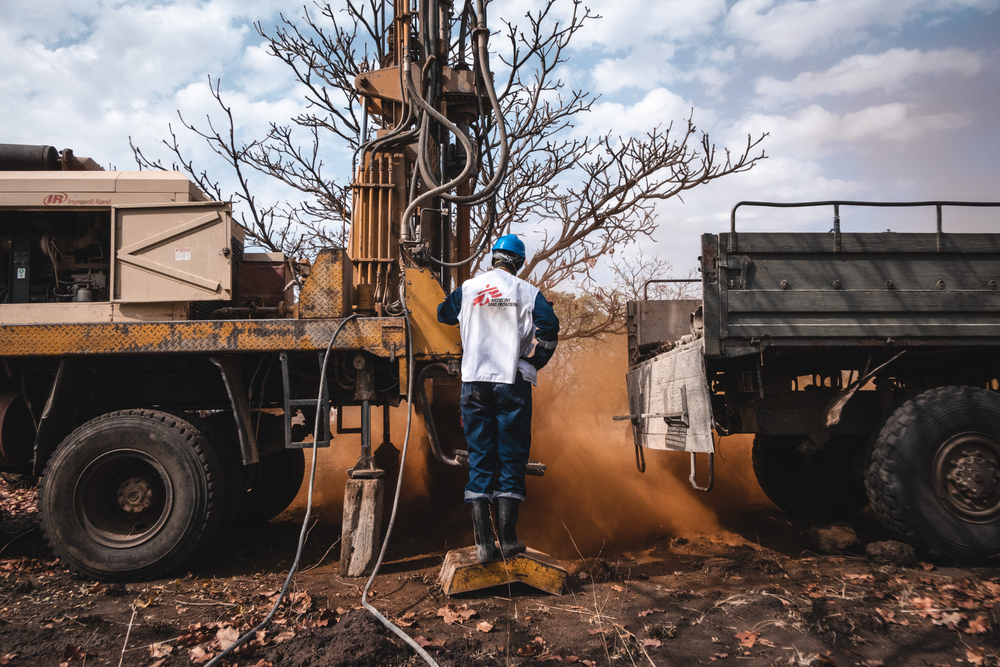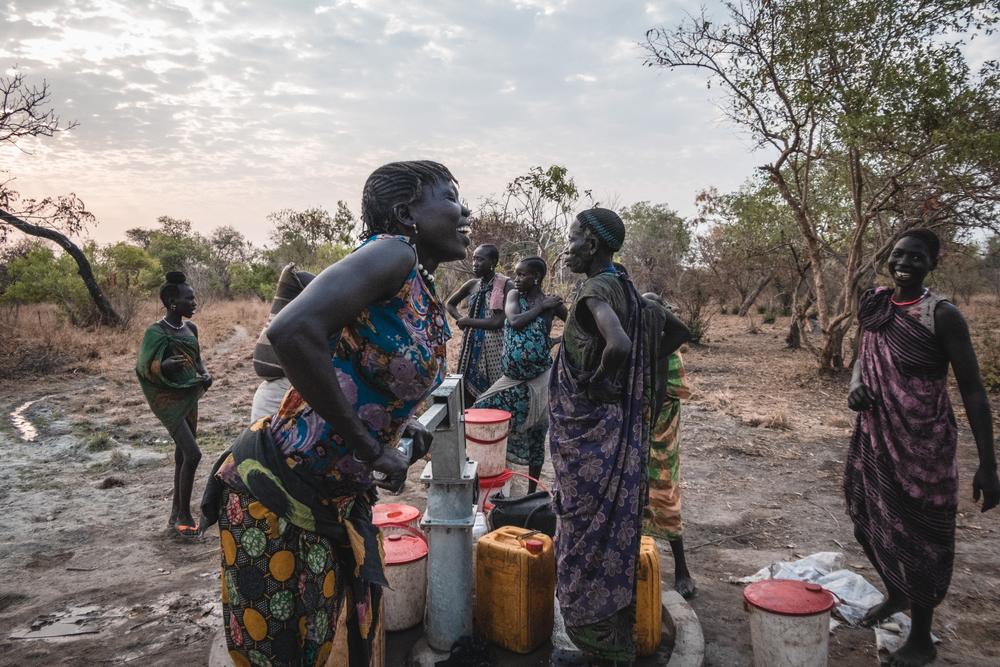“We never used to know whether the water was clean or not but we later found out that it was contaminated. The water gave us diarrhea,” said Roda James, a mother of seven children and resident of Labarab, a remote area in the Greater Pibor Administrative Area (GPAA) in eastern South Sudan.
Roda’s words echo the daily realities of life in this semi-nomadic population, as well as many other communities across South Sudan, where access to safe water remains a challenge. A recent study revealed that 61 percent of South Sudan’s population do not have enough water to meet their household needs, and the number was even higher in rural areas. Moreover, 49 percent of households also reported relying on surface water as their main water source, putting people at grave risk of waterborne illnesses such as diarrhea and cholera.
“The water is dirty because birds, cows, dogs and all domestic animals are drinking from the river. The animals urinate and defecate in the water and this is the same water we used to fetch and drink,” said Peter Adonyo Gayin, the Administrator of Labarab Payam.
In a bid to improve access to safe water, early this year, Médecins Sans Frontières (MSF) launched a campaign to drill ten boreholes in Maruwa, Labarab and Boma areas in GPAA. Aggrey Nyaleso Isanyili, MSF Groundwater Manager, said the drilling of boreholes is an important health strategy to boost efforts to prevent waterborne diseases.

Chief borehole engineer inspects the drilling manoeuvre in Kulogon village, Labarab. [© Njiiri Karago/MSF]
“Prevention is better than cure. MSF took the initiative of preventing these waterborne diseases by providing good clean water; and it is making a difference,” stated Nyaleso. “It was like a miracle to the people here, because they have never seen water coming from the borehole or hand pump. Even they were asking permission if they can use the water and we told them ‘it belongs to you’.”
Roda said she used to spend nearly an hour every day searching for water from the river before a hand pump was recently installed in her village. “When the river dries up, people migrate in search for water,” shared Adonyo. “I know that people are happy about the borehole being built by MSF next to their village.”
The construction and management of the boreholes is being done in close concert with the communities. Community water committees are responsible for the maintenance of the boreholes as well as organizing health promotion sessions among the local population to explain the benefits of water supply and sanitation systems.
“First, we had a meeting with the chiefs and discussed the new approach that we were going to do. They were so happy to welcome us and also to welcome a borehole in their community,” said Nyaleso. “We will select a team from the community that MSF will train and equip them with some essential repair tools so they can maintain the water pumps themselves because they will be the property of the community.”
Reacting to the new boreholes in the area, Roda stated “We are very happy to have water because many people here in Labarab suffered. We had a lot of sickness and having clean water has helped us a lot. We now have access to clean water for cooking and drinking. Our life has changed compared to how it was before.”
